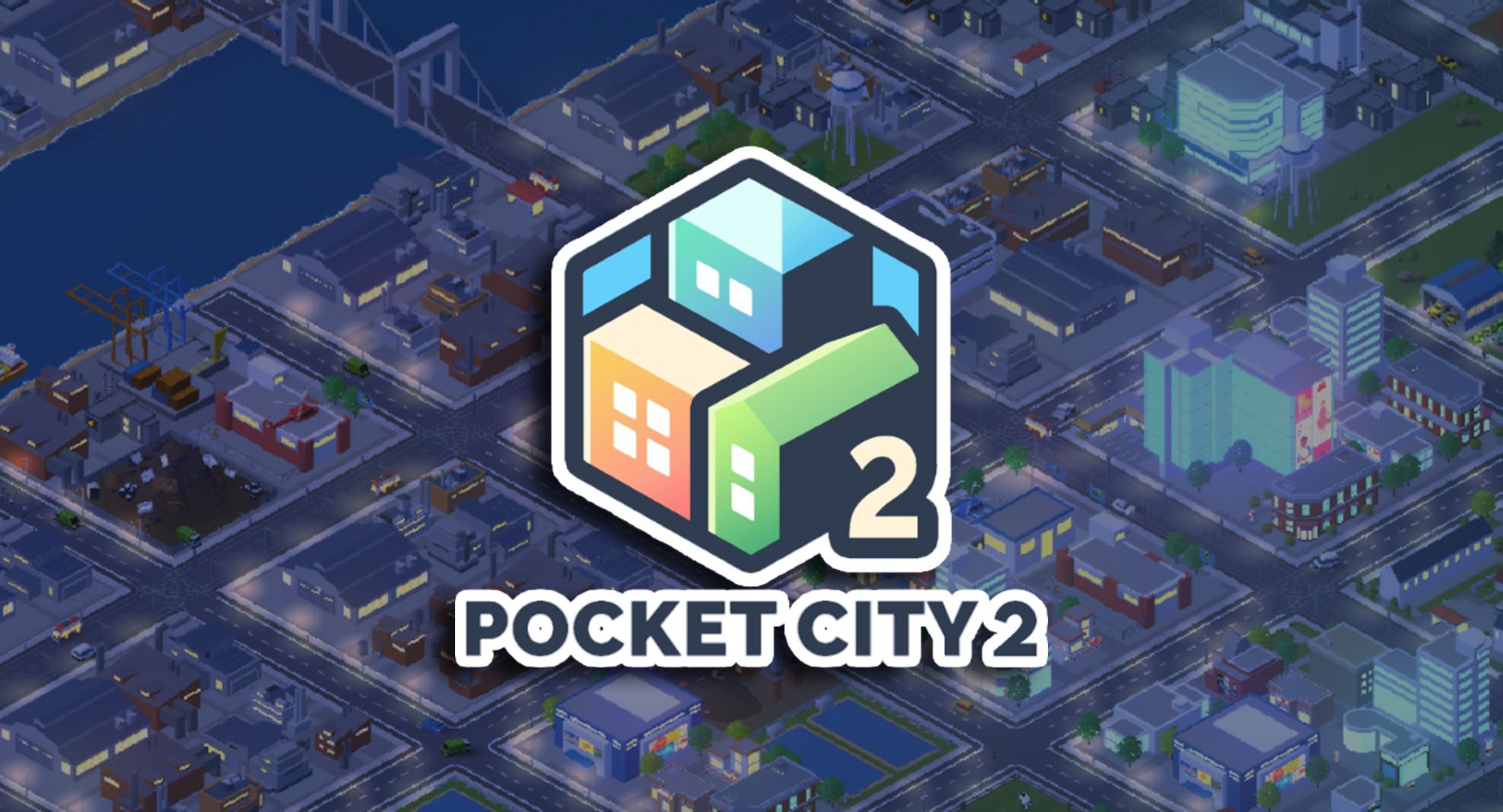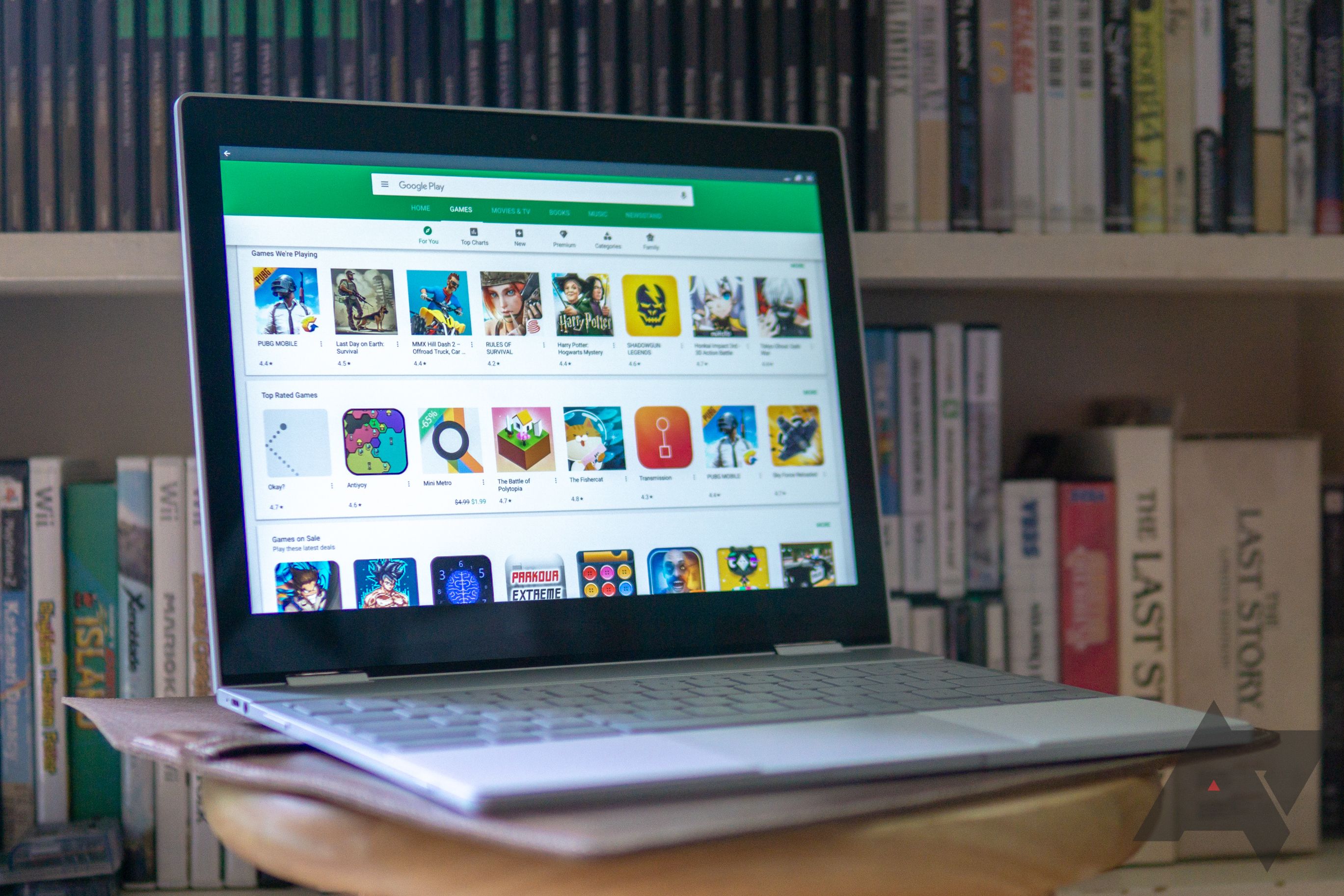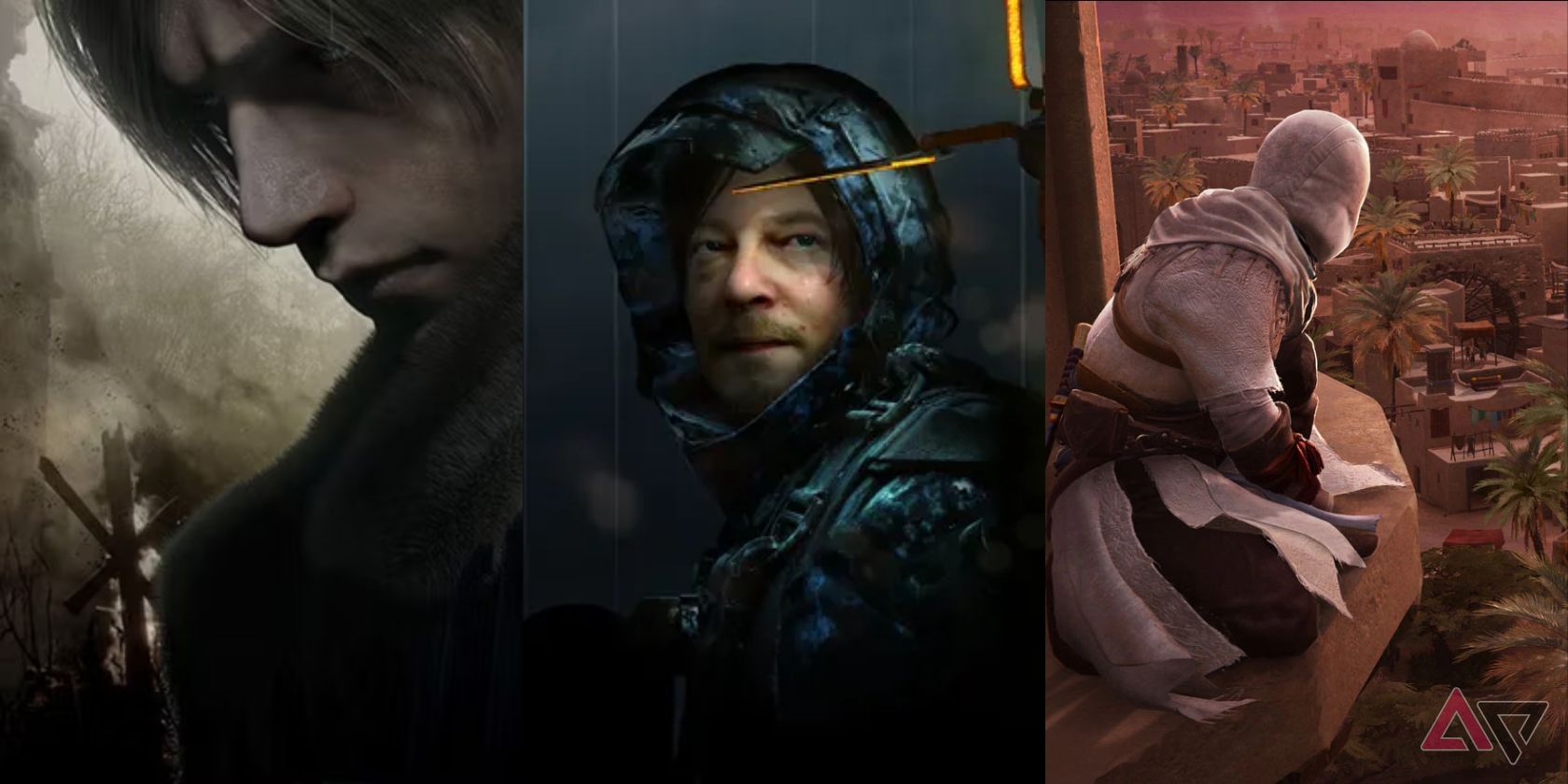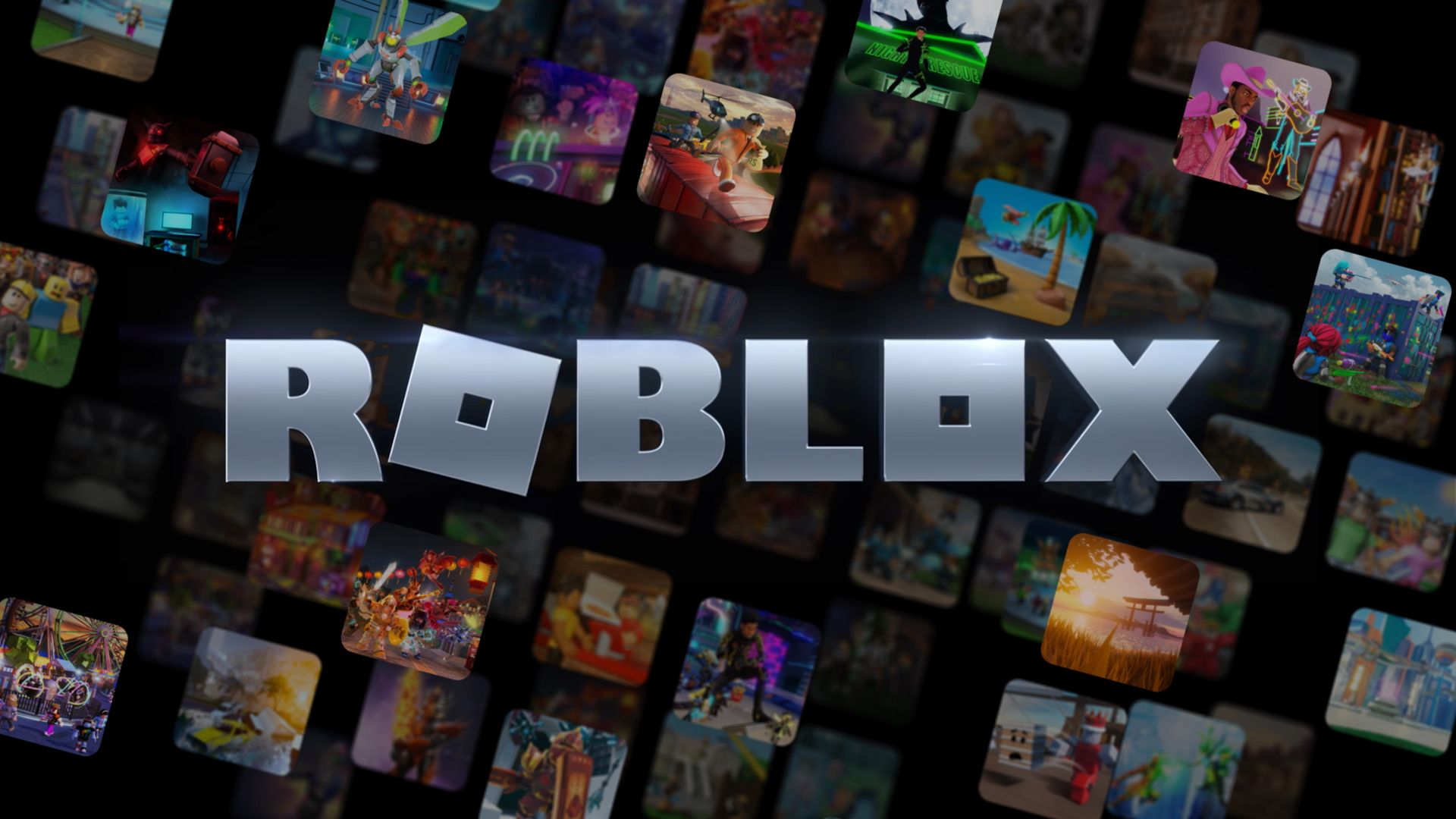latest

10 best Vampire Survivors characters
Our top character picks to confront hordes of enemies and come out alive
Even though the hype train for Vampire Survivors has left the station, that doesn't mean the game is obsolete. Developer Poncle releases updates, patches, and DLC at a frenetic rate, meaning there's always something new. The latest update is the Emergency Meeting DLC, a crossover between Vampire Survivors and the modern cult classic Among Us.

12 best battle royale games on Android in 2024
From Apex Legends to Fortnite and beyond, we've rounded up the best battle royale games on Android
Battle royale has solidified itself among the best games on Android, along with being a popular genre for a decade. Dozens, potentially hundreds, of players vye for a single prize. But only one of them, usually, comes out victorious, which makes battle royale such a competitive high-stakes affair.

Pocket City 2 tips and tricks: Essential building plans
How to exploit the most joy from your residents!
There's not doubt that Pocket City 2 is the leader of the pack when it comes to premium mobile city builders. Couple intuitive controls and clean graphics with a quirky personality and you've got a game that's easy to pick up and play, and hard to forget. If you've never heard of Pocket City and are new to the city-building genre in general, you should head over to our introductory guide to get you up and running fast. Of course, if you're looking to play Pocket City 2 on a larger screen, then we've got a list of great tablets for you as well.

How to beat The Reaper in Vampire Survivors and unlock Red Death
Seasons don't fear The Reaper, and neither should you
Although the hype around Vampire Survivors seems to have died down, its community continues to grow due in large part to the largess of its developer, Poncle. Over the past year, it's released four major updates (all completely free), and two bargain-priced DLC packs; and don't forget, the game is completely free on the Play Store and you don't even need a high-end gaming phone to play it (but it couldn't hurt). In addition to this constant supply of new content, the gameplay is notoriously replayable, capable of sucking away hours of your life as you endeavor to unlock new stages, weapons, and characters. Some of these unlocks are easier than others, but one of the first big hurdles most players have to overcome is defeating the level-ender itself, The Reaper.

You'll find a vast assortment of genres among the best games on Android, including hardcore roguelikes, and expansive open-world titles. There's something for everybody, whether you want to explore an immersive RPG or unwind with a straightforward beat-em-up.

Who says games are a waste of time? Depending on the genre, they have the capacity to teach you almost anything. In particular, word games offer a unique blend of entertainment and puzzle-solving. And it just so happens that they feel right at home on contemporary Android tablets.

Creating a quality puzzle app is not easy, even for the best of the best on the Play Store. Balancing gameplay elegance, intricacy, and satisfaction while adhering to a reasonable difficulty curve is a task only the top puzzle games can achieve. The key is to reward players for their deductive reasoning skills rather than demanding snap decisions, incentivizing some deeper thought and caution before proceeding. Build it around an entertaining gameplay loop with a sweet artstyle, and you’ve got a great puzzle game, ready for the best budget Android phones. From calming apps like Mekorama to addictive “just one more go” experiences like Melon Maker, Puzzle apps are primed and ready to keep you guessing.

New and original Android games appear on the Play Store regularly, but sometimes you need a retro game from the '90s and early '00s to settle down with. While other games offer groundbreaking visuals, these rely on their gameplay to provide an engaging experience.

20 best ChromeOS games you can play right now
Why use a touchscreen when there's a keyboard at your fingertips
You’ll find that most of the Play Store's most popular apps support multiple platforms, giving everyone a chance to enjoy some great software using alternative input types; whether you prefer a touch, controller, screen, or keyboard. Google's best Chromebooks just so happen to support a huge library of great games that have amassed great communities through crossplay with Androids' best bargain smartphones.

22 best free-to-play Android games in 2024
A curated selection of free mobile games that are actually worth your time
There are countless free-to-play games on the Play Store, many of which are some of our favorite games to play on Android. From competitive card games like Marvel Snap to quirky arcade titles like The Ramp, the huge variety of free games are perfect companions to one of the best Android gaming phones.

Fighting games have come a long way since the era of 90s arcade machines. On Android, you can find anything from ports of the classics to exciting new titles like Injustice 2. They're some of the best competitive games on Android while catering to all skill levels.

16 best tower defense games in 2024
Fight aliens, zombies, and other mythical creatures in the best tower defense games on Android
Tower defense is an oft colorful and hectic subgenre of strategy games. It favors fast-paced combat and decision-making over a methodical turn-based approach. Tower defense tends to put you in the driver's seat of protecting a point of interest, which could be a tower or some kind of a base, but it can also be a backyard, a specific item, or even a person.

The most replayable games on Android in 2024
Get the biggest bang for your buck with games that never end
Sometimes, we can only budget so much space on our handy Android phone or tablet with gaming apps. Or perhaps it's a personal preference not to build an overwhelmingly large library of games, so we'd prefer to stick to a select handful of prestigious titles to pass the time. No matter the reason for gravitating towards some titles with endless gameplay, you've come to the right place to pick up a game or two that offers plenty of longevity and replayability.

These are the games that should have been announced for Android this year
Google must take the initiative in 2024 for healthy competition
2023 was a great year for Android games. Netflix Games brought more fantastic titles to Android, while the latest and greatest gaming phones and controllers made our mobile devices indistinguishable from dedicated handheld consoles. But it was iOS that took the lead on mobile gaming this year, outshining Google's mediocre attempts, and launched a handful of AAA titles with even more coming next year.

Survival games on Android differ in gameplay but are united by their rewarding gameplay. Whether you enjoy the tense horror of Alien: Isolation or the casual gameplay of Terraria, each moment is another step toward success. While survival games go hand-in-hand with the top Android adventure games, the stakes are usually much higher.

Roblox is a certified juggernaut raking in millions of dollars every day. The platform has tens of millions of games available to play for free from your computer, smartphone, or shiny new Chromebook. There’s literally something for everyone, but that doesn’t mean that every game is appropriate for all ages. When it comes to titles suited to young gamers that are family-friendly, it’s important that the content, objectives, and interactions are appropriate. To that end, we want to share some of the top games for young players on the Roblox platform.

13 best open-world games on Android in 2024
Delve into the top open-world games that Android has to offer
After a 10-year-long absence of new releases, GTA VI, the biggest open-world game, has finally been announced. We're just as excited to revisit Vice City as the next guy. But what are we supposed to do until 2025, when the game is supposed to come out?

11 best scary Roblox games to play in 2024
Think you’re brave enough to handle the scariest games in Roblox?
Roblox is an immensely popular game client for consoles, PC, and your favorite Android tablets. It essentially lets you to create or play a game within the game, of any genre. And given the creative aspect, many players have taken to creating unique horror experience.

Metroidvania is one of the more storied gaming genres. It draws inspiration from Castlevania and Metroid, and combines the best gameplay aspects of the two. At a glance, Metroidvania is easily mistaken for one of the best platformers on Android, and there's a fine line between both genres.

9 best pixel art games on Android in 2024
You don't have to feel nostalgic to enjoy quality pixel art games
If you had the pleasure of growing up in the 80s and 90s, then you were among the lucky ones to enjoy pixel art. It imbues a game with the vibe of a bygone era, when many details of an aesthetic were left to your imagination. Nowadays, it's a visual style used mostly by indie developers.







